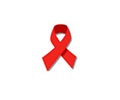The International Aids Conference in South Africa wrapped up with calls for increased funding as the search for a cure continues.

‘The International Aids Conference in South Africa wrapped up with calls for increased funding as the search for a cure continues and with HIV infections running at around 2.5 million a year.’





The Conference wrapped up Friday, July 21, 2016, with calls for increased funding as the search for a cure continues and with HIV infections running at around 2.5 million a year. "The work simply isn't done," incoming International Aids Society (IAS) president Linda-Gail Bekker told thousands of delegates at a closing ceremony. "During the five days of this conference, 15,000 people living with HIV have died and more than 28,000 have been newly infected with HIV, of which 1,500 were young people from this country alone. This makes me outraged and appalled and I see no room for complacency."
But as the number of new infections has leveled off, funding has dipped.
A UNAIDS and Kaiser Family Foundation study presented at the conference this week pointed to a billion dollar drop in donor government funding, from $8.6 billion in 2014 to $7.5 billion in 2015.
"We're at a particularly critical moment for the future of funding," said Bekker, who is the first African women to lead the IAS.
Advertisement
Founded in 2002, the fund was established to raise money in the fight against Aids, malaria and tuberculosis.
Advertisement
Failing to address the funding gap, would only cost more money, said the Global Fund Advocates Network earlier this week.
A study released by the group this week warned of 21 million preventable Aids deaths and 28 million new HIV infections over the next six years if the Global Fund did not get the requested $13 billion.
"People, this is what it comes down to: whether people live or die in many countries, will depend on how donors respond to the Global Fund's call to action," said Bekker. "Lives depend on the Global Fund."
But despite the dire warning, Bekker said she was optimistic about the future.
"I'm excited and optimistic about the future of the global HIV response," she said.
"The scientific insights and programmatic responses shared at this conference provide powerful evidence that we can beat this."
The conference returned to Durban this year 16 years after Nelson Mandela galvanized the world to take up the fight against AIDS, describing it as "one of the greatest threats humankind has faced".
The 2000 conference was a contentious affair, with South African activists angrily criticizing then-president Thabo Mbeki, who insisted the disease was caused by poverty, not by the human immunodeficiency virus (HIV).
But its emotional impact transformed the AIDS campaign.
"People at the last Durban conference came at a time when there was no hope," UNAIDS' deputy executive program director, Mahesh Mahalingam told AFP. "They came here (now) with hope, and they came here with results, results that showed that the glass was half full. But also what the conference did was tell the world that a glass half full is no longer acceptable. We need the glass completely full - we need 30 million people on treatment." The United Nations has set 2030 as its deadline to end the Aids epidemic.
Source-AFP














